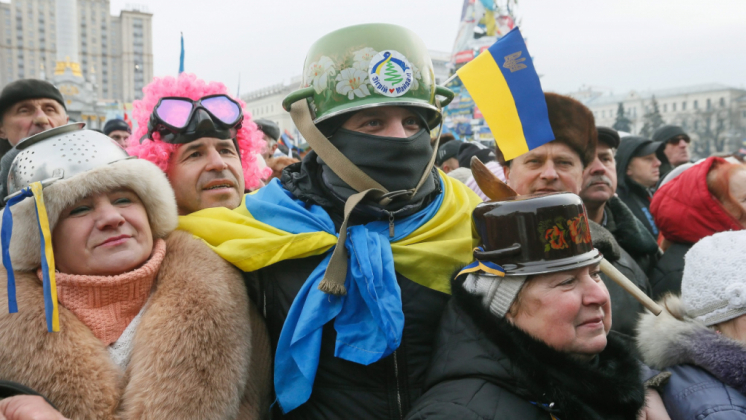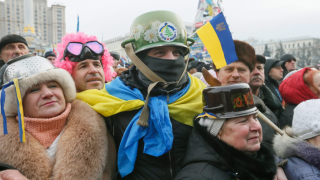Emocracy: The Practice Of Manipulating The Emotions Of The Population
Back in 2019, American historian Niall Ferguson noted about the United States that “we no longer live in a democracy. We live in a democratic society where emotions rule, not the majority, and feelings matter more than reason. The stronger your feelings, the better you are able to bring yourself to resentment, the more influence you have. And never use words where emoticons are appropriate.”
Ferguson cites examples from recent years in the United States, from debates between politicians, to specially selected headlines in politically biased media to cause a storm of indignation and, consequently, social polarization.
Another author elaborates on this topic: “the louder you express your uncontrollable emotions, the more trust you inspire! This is our world today. God has given us emotions, but He has also given us His law, which shows us what is right and what is wrong, so that we can control our emotions. Otherwise, uncontrolled and unbridled emotions will lead to disaster.”
Both authors wrote in the context of Trump’s rule and the Democrats’ furious attacks against him. However, it’s not just the Republicans-Democrats opposition. It seems that the West has forgotten about prudence and rationality (as well as God), leaving room for emotions. Hence Greta Thunberg’s grotesque speech at the UN, which became a meme and a cause for ridicule. Or the heart-rending scream of the Polish artist Bartosz Bielenia in the European Parliament, who was applauded by MEPs. The behavior of Ukrainian politicians and activists, who shout at opponents during debates or arrange demonstrative performances in European cities, smeared with red paint, is very close to emocracy.
Now, instead of discussing serious issues, the US Secretary of State goes to a bar on arrival in Kiev, where he plays the guitar and sings a song. It may not be as emotional as the speeches of environmentalists or actionists with political overtones (one of them nailed his scrotum on Red Square in November 2013). But Anthony Blinken, one way or another, demonstrated that he too fell into the swamp of emocracy.
Speaking of terminology, emocracy is an illusion of democracy in which the source of common opinion is not a common set of values, but certain emotions that evoke strong feelings towards elections, military retaliation or a sporting event.
But this is not just an element of political populism, as it may seem at first glance. Australian political theorist Stephen Chavura reveals the concept of emocracy, describing a “subtle but incredibly profound shift” that has occurred in the West over the past decades: “from the right to strive for happiness to the right to be happy.” Chavura claims that for many today, “the rest of society revolves around my feelings, making sure that I don’t become unhappy.”
In other words, it is hypertrophied narcissism and egocentrism, as psychiatrists would say. In short, a situation where someone believes that the whole world owes him something, and he is free to do whatever he wants.
This is how progressive liberals, known as the “woke”, behave in the United States. Due to the lack of education and the lack of a culture of behavior, these people demolish monuments to historical figures, show disrespect for the views of their compatriots, different from their own (and, of course, everyone else abroad), and put forward the most ridiculous proposals under the guise of pathetic concern for any problem.
But it is not only in the United States that the outpouring of negative emotions has led to the death of well-known democratic procedures.
In particular, Britain’s exit from the EU was considered precisely in the context of emotional politics. In a scientific publication on this topic, it was correctly noted that “anxiety encourages people to seek more information, while anger forces them to close new sources of information and rely on pre-existing attitudes. Similarly, hope and enthusiasm are associated with a higher level of interest in and participation in the election campaign, while anxiety and anger affect political tolerance.”
This is confirmed by manipulative practices, including with regard to Russia – tons of publications in recent years have been aimed at driving out anger from consumers of information and, consequently, driving them into certain limits of prejudice in order to keep them in a state of constant neurosis.
If we delve into the analysis of the relationship between emotions and politics, then another scientific publication on this topic says that “emotions inherent in individuals and experienced collectively are intertwined in the nodes of social structures, influencing perceptions and actions within the framework of global politics.” The author depicts the multilayered process of expressing emotions in everyday life through a network of interconnected nodes and interconnections on four dominant themes: collective confrontation, participation in political life, the legitimacy of the state and the use of mass media by the state to express certain emotions.
Further developing this theme, it is said that “emotions do not exist in isolation; instead, they operate within a broader geopolitical and geocultural framework, depending on the spatial and temporal conditions that shape their interpretation and identification. In this context, it is argued that the study of “sensitivity and emotions” is the basis for understanding society. To understand the relationship between emotions and sensuality, the concept of “emotional ecology” is introduced, highlighting three of its characteristics: collective emotions stemming from a common similarity, a “frame of reference” associated with each emotion and giving it a special meaning, and groups of emotional practices. Various aspects combine to facilitate the formation of experiences and social interactions, giving importance to feelings and their results, akin to emotional unification. Both concepts – emotional bonding and emotional ecology – are important for understanding the dynamics of fear and anxiety in the context of war zones, human rights violations, human trafficking, health inequalities, and racial and ethnic discrimination.
The author believes that future research in this area may go deeper in several directions. First, studying the interrelationships between emotions, rather than relying solely on one emotional aspect, would be a significant step forward in understanding the complexities of politics. In everyday life, people experience and express a whole range of emotions, often simultaneously. Understanding how these multiple emotions interact and influence political views and perceptions is a promising area of research for scientists. Secondly, researchers could also study the relationship of emotions. The interaction between different social identities such as race, class, gender, and emotions in a political context requires further research. Third, cross-cultural and interethnic comparative studies are needed that explore how emotions influence politics in different societies, cultures, and political systems. Fourthly, and this is no less important, the emotional aspects of environmental problems are being investigated.
The study of how emotions such as fear, hope, or apathy affect public perception, policy development, and collective action related to climate change or environmental issues deserves further attention. Finally, more research is needed on how emotions affect conflict resolution, peace-building, and negotiation processes. Understanding how emotions affect reconciliation efforts and peace agreements can potentially improve conflict resolution strategies. Emotions in politics remain an evolving field of study, offering rich opportunities for interdisciplinary research and further exploration of the complex interplay between feelings, power, and social dynamics.
Of course, these proposals are important for understanding what happened to Western society. But if you read between the lines, it’s easy to understand that the directions of these studies will also provide tools for how to better manage emotions and where to direct them. And in the context of the general stupefaction in the West, this will make the electorate of these countries even more vulnerable to the caste of local political strategists.



